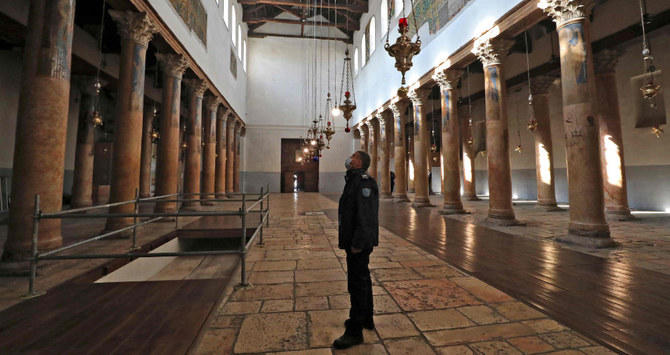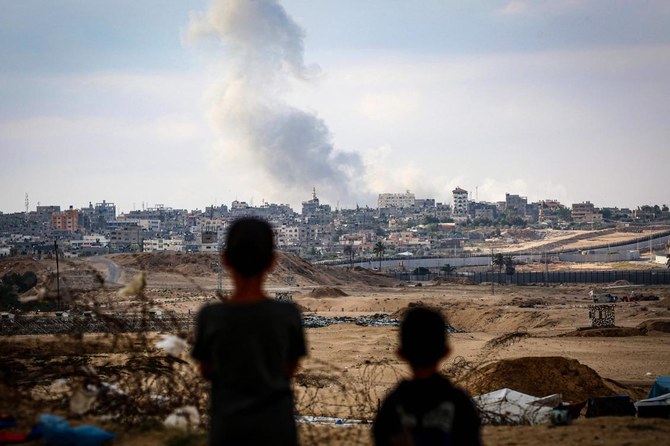Every year, the city of Bethlehem receives millions of foreign tourists from around the world, peaking during the Christmas period, which provides the main source of income for the city.
But this year, for the first time, the city resembles a ghost town. There are zero tourists, closed hotels, shops without customers, and celebrations have been limited to religious rituals amid the coronavirus pandemic.
The city of Bethlehem recorded its first coronavirus cases in March. Numbers soon spiked to about 10,000 cases, resulting in 88 deaths, the Palestinian Ministry of Health said.
Saleh Matiri, the owner of an antique store in Bethlehem who has worked in the shop for more than 12 years, complained about the lack of business since the virus outbreak.
“We do not work today. Our business mainly depends on tourists. The shop is practically closed. We open for ventilation and we have had no source of income for many months because of coronavirus,” Matiri, 43, told Arab News.
He added: “I used to have three workers with me in the store, now I don’t need them. I kept them for a few months and paid them salaries, but now I cannot afford these high costs of rent and payment of wages and other expenses.”
The pandemic caused a sharp decline in both domestic and foreign tourism in Palestine, especially after the government imposed strict business closures to limit the spread of coronavirus.
Samir Hazboun, head of the Bethlehem Chamber of Commerce, said that 2020 was “absolutely unparalleled” in terms of economic damage and recession.
“Tourism in Bethlehem and facilities operating in the same field absorb 40 percent of the city’s workforce, and since last March it has been completely closed,” Hazboun said.
There are 73 hotels in Bethlehem, containing about 7,000 beds, which are normally filled during the Christmas period, he added.
“There are many hotel owners who obtained loans from banks before the pandemic reached Palestine, and we worked hard to postpone debts and loans imposed on them as a result of the economic conditions,” he said.
Celebrations for Christmas this year in Bethlehem will be restricted to religious rituals, with the presence of a limited number of Christians, clerics and officials, and a complete absence of tourists, according to Bethlehem’s mayor Antoun Salman.
“In 2019, about 3 million tourists visited Bethlehem, and at the beginning of the year we expected this number to increase in 2020, but with the advent of the pandemic, all tourism activities stopped and tourists were absent from visiting Palestine and Bethlehem,” Salman said.
“Before coronavirus, the unemployment rate in Bethlehem was about 14 percent, but after that it increased to 40 percent, which greatly affected the economic situation in the city, due to the disruption of the tourism sector since then,” he added.
According to the Palestinian Central Bureau of Statistics, more than 33,000 Palestinian are employed in tourism jobs in the governorates of the West Bank, while the largest percentage are concentrated in Bethlehem.
Palestinian Tourism Minister Rula Maayah said in a press conference that the impact of the pandemic on tourism will be “significant” and that losses by the end of the year might amount to $1 billion.
“Bethlehem is the most affected Palestinian city as a result of its dependence on tourism, whether in terms of hotels, workshops, tour guides, tourist transportation, shopping, restaurants and indirect tourism service providers,” she said.
Despite the great losses incurred by Bethlehem this year, the long-lasting damage will likely be felt for years to come.
“If the coronavirus pandemic ends and tourism returns to Bethlehem, we will need two to three years to recover and return to the reality we were in at the beginning of 2020,” Hazboun said.


























